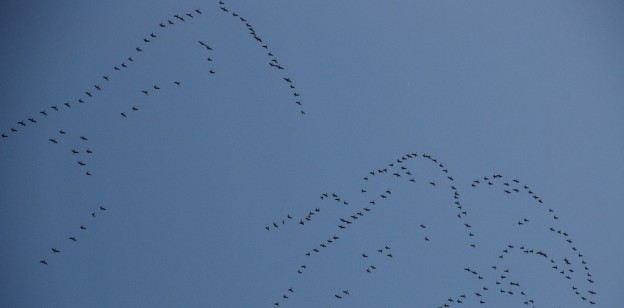I used to be an economist. Then in the two-thousands, I started to read about complexity science. I chased an intuition telling me networks are important (it was 2009, I still remember the epiphany when I saw the network analysis of interactions in Kublai) and started to study them. I was – still am – looking for a sort of Holy Grail: design and build online communities that can deploy collective intelligence to attack problems too complex for individuals (even very smart ones) or small groups to crack. To burrow deeper into the issue I had to re-learn some linear algebra and probability theory; and that unlocked paths entirely new to me, dark passageways across computational biology and experimental psychology.
The landscape got really strange, a far cry from the orderly, well-lit architecture of standard economics. Quite dangerous too: it’s full of philosophical traps (if it is really collective intelligence, will we individuals be able to recognize it? Would that not be like a neuron trying to understand the brain?) and even moral dilemmas (it is possible that the well-being of a system implies sacrificing its components, just like a species evolves killing off its weakest members: what happens if the system is society and we are its components? Do we sacrifice the whole or the parts?).
But here’s the craziest thing: I am not the only one wandering in this place, wherever it is. In the world of public policies, where I have worked for years, with every passing month I recognise new fellow travellers. I find myself talking of esoteric stuff like evolving networks, smart swarms, online ethnographies, variability engines. I feel like a sixteenth-century alchemist: we do stuff, it seems to work, we am not quite sure why but it works too well to be just random luck. We feel on the verge of an important discovery, something like the seventeenth-century scientific revolution. This weird, dark world is behind my talk at Personal Democracy Forum, held a month ago in Rome. If you want a taste, the video is below, both in the English original (left audio channel) and in Italian translation (right).
(Dedicated to Giulio Quaggiotto)
